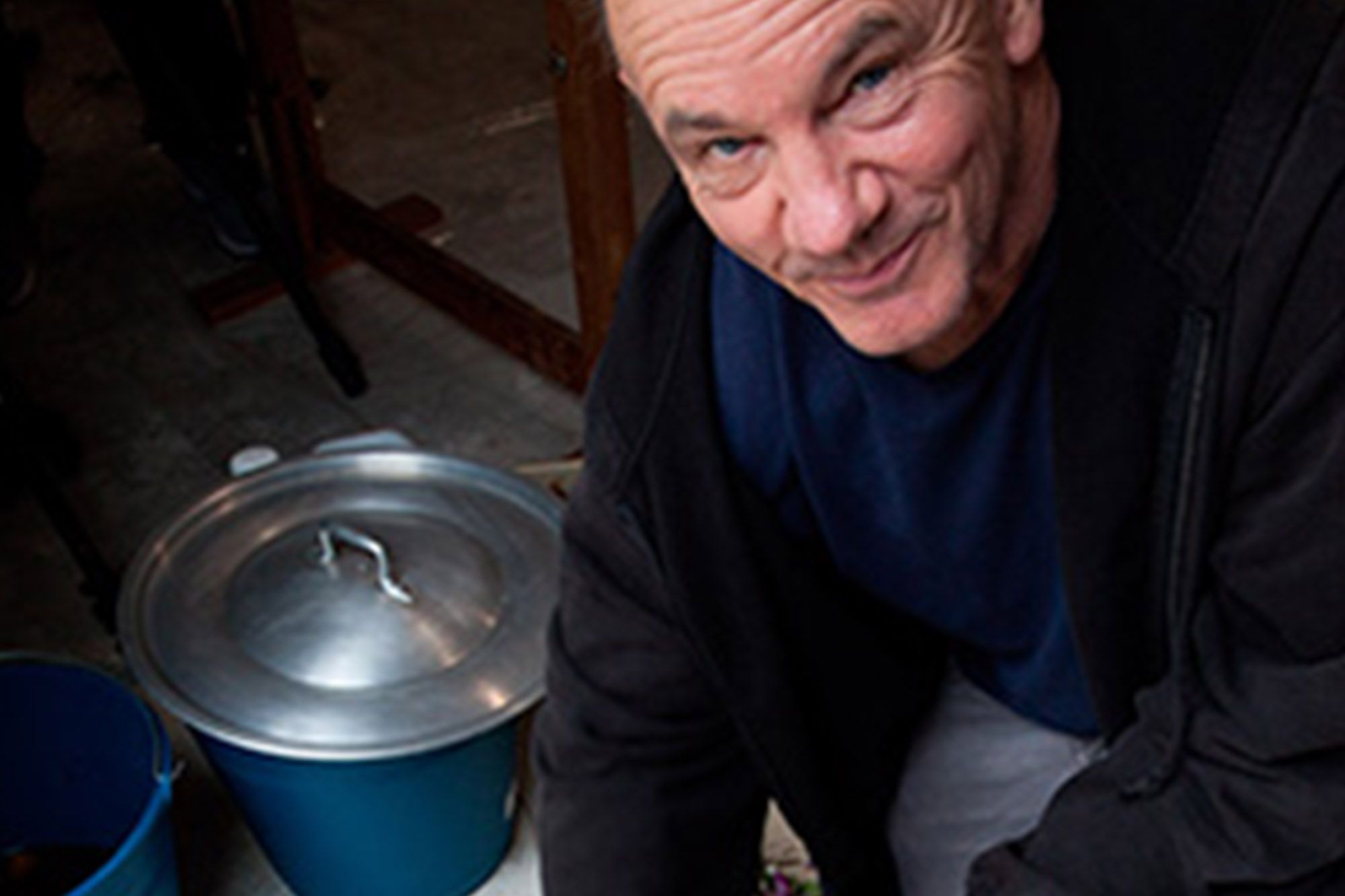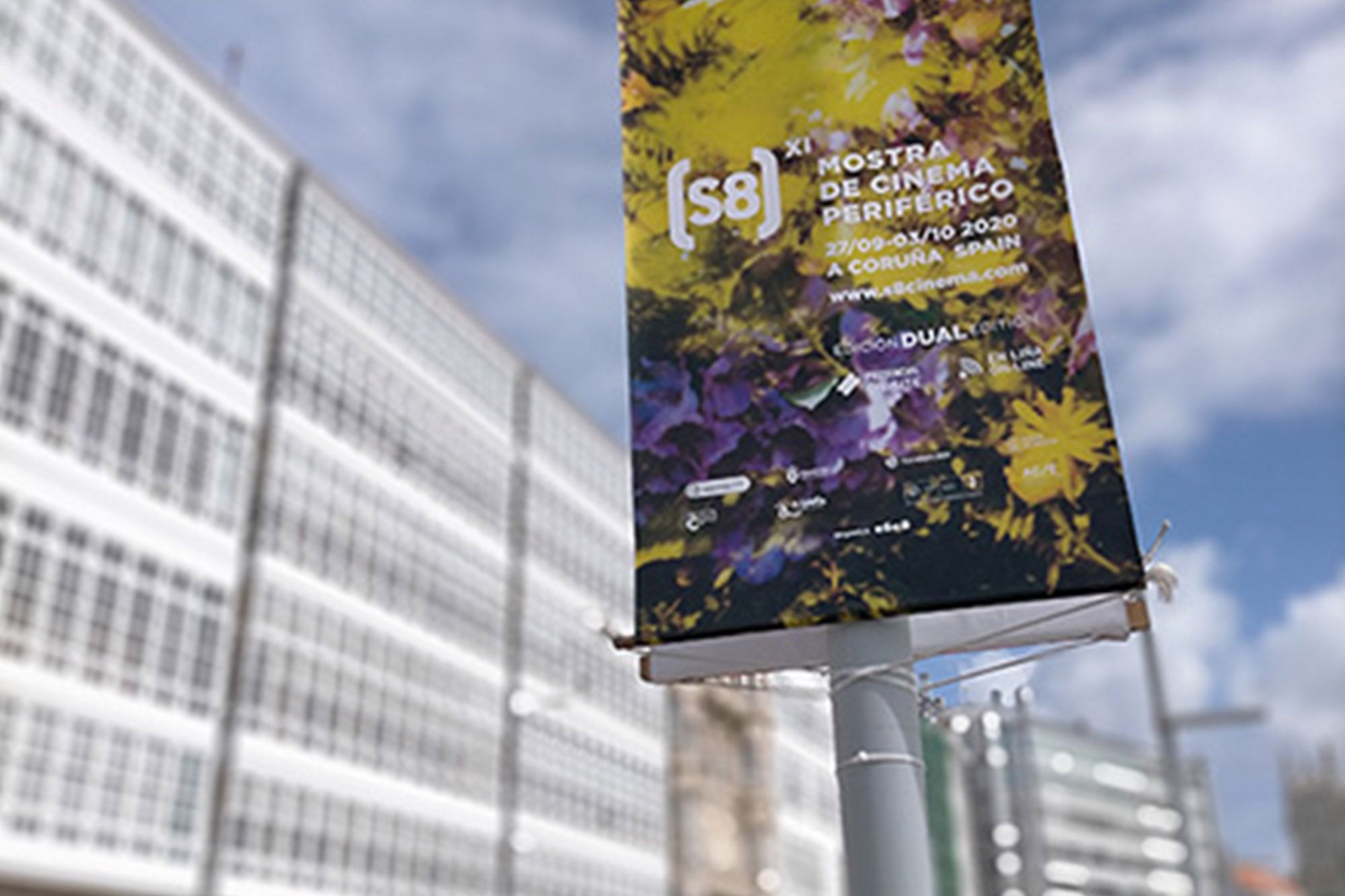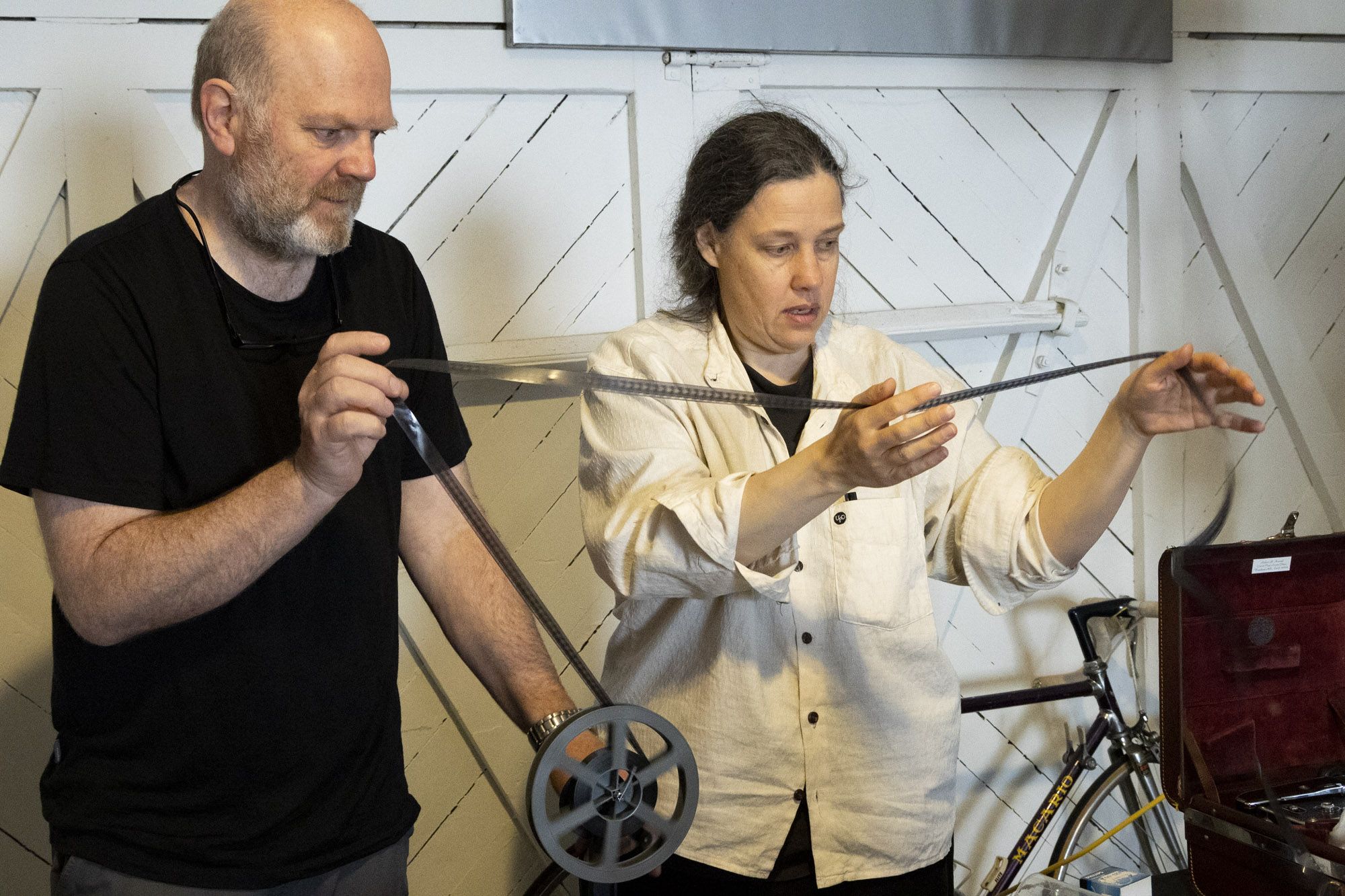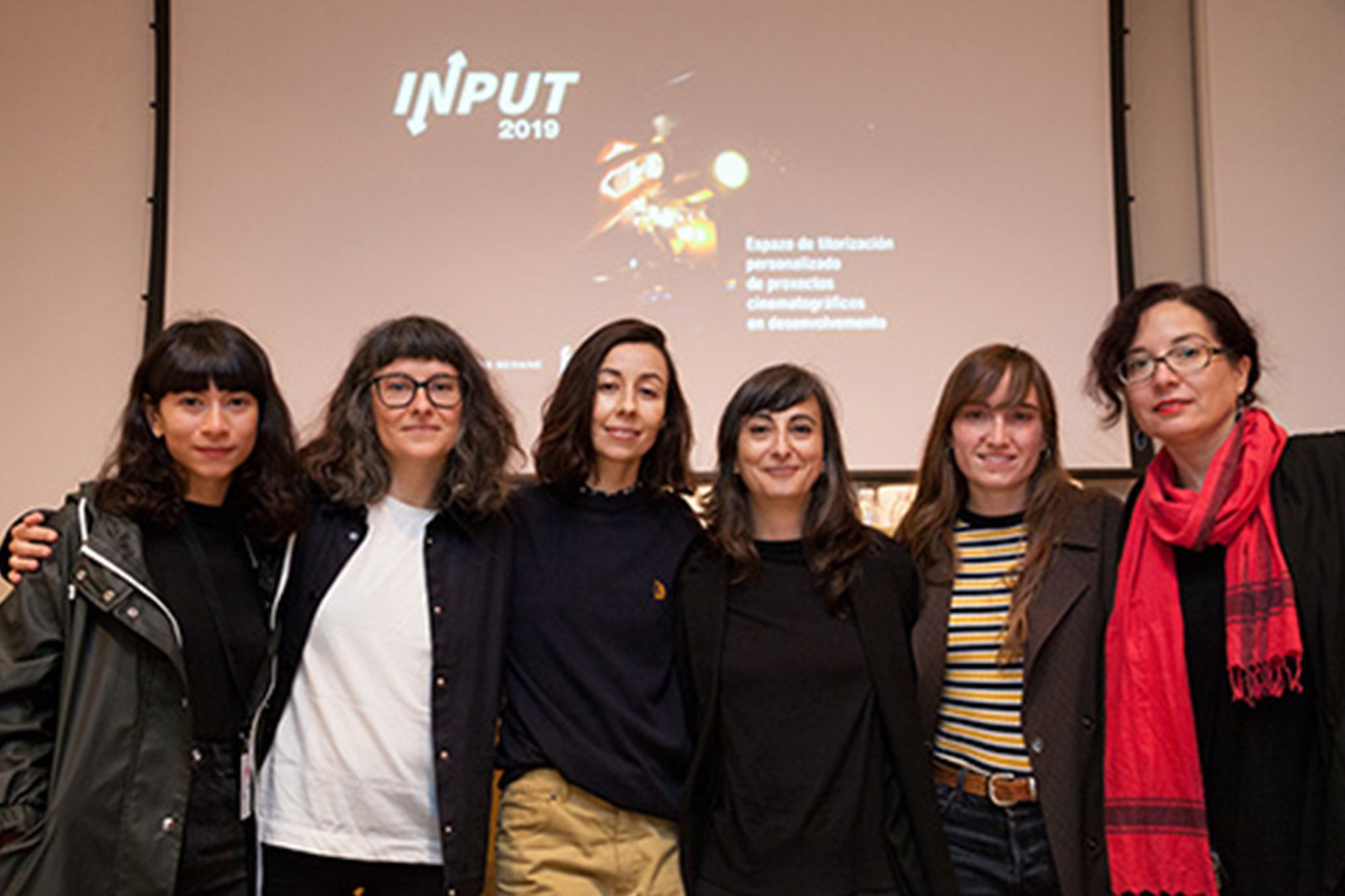SUSTAINABILITY
Since its outset, the (S8) International Peripheral Film Festival (Mostra Internacional de Cinema Periférico) has kept up a commitment to environmental and economic sustainability in various ways, such as recycling and reusing materials, furniture and structures from one year to the next, the agreement with public transport bodies, and more.
Such activities have always been a part of the Mostra’s good practices. In recent times, (S8) has been drawing up an ENVIRONMENTAL SUSTAINABILITY PLAN with clear GOALS and PRINCIPLES:
-
- To reduce, prevent and offset our ecological footprint, taking on a series of commitments that comply with the following principles.
- To reduce the consumption of non-renewable resources.
- To lower the generation of waste and pollutants.
- To prevent the environmental, cultural and social impact arising from holding the event in A Coruña, but also on a nationwide, European and global level.
- To raise awareness about environmental problems related to climate change, desertification and global environmental changes.
- To encourage the use of sustainable transport and consumption in a responsible way as regards our environment.
- To foster environmental awareness among our audience.
In addition to the aforementioned activities, there will be other new ones that have been introduced into our plan to continue implementing them in the upcoming festivals.
Furthermore, our programme includes a film series for schools each year, which during the month prior to the festival seeks to raise awareness of the environmental problem among the youngest and stimulate debate about it in subsequent talks.



Raising awareness about the issue among the adult audience at the festival is also an ongoing task, not only via the films, but by teaching DIY practices and the principle of degrowth. Such activities include:
- The development workshop with flowers (green process), free of polluting chemicals, given by Phil Hoffman (2018)
- The film workshop with no camera by Madi Piller (2019).
- The online workshops by Richard Tuohy and Dianna Barrie (2020) who taught, for example, how to make a pinhole camera at home with recycled materials.
- In 2022, Dianna Barrie & Richard Tuohy attended. The filmmakers came from Australia to use their DIY philosophy to give a workshop in which they taught us, for example, how to build a simple home laboratory to develop our own films ourselves.
All of this enables us to free ourselves from depending on large laboratories, and to save a significant carbon footprint in bulky shipments and developing chemicals.
At (S8) in 2023, new activities are also being introduced, such as:
-
Reusing canvases and banners from previous (S8)s in a project to recycle and manufacture textile tools, household items and accessories that will be put on sale, coordinated and created by the designer Melania Freire (Mercedes-Benz Fashion Talent Award 2019) in collaboration with Aida Mosquera (Stylist and Art Director), and manufactured by members of ADCOR – Fundación Adultos Discapacitados de A Coruña (Disabled Adults Foundation of A Coruña). This is an original way to lend new life to these materials.
- The “SUSTAINABILITY IN FESTIVALS” panel will be held with representatives of different festivals in Galicia, united by their participation in the SUSTAINABLE CULTURE AGREEMENT.
GENDER EQUALITY
(S8) is a cultural event programmed, organised by and starring women.
This has an impact both in the way of working and functioning as a team, as well as in creating the programme. In the very essence of the festival, “peripheral”, it is our intention to foster a free and independent cinema. This is a kind of cinema that is difficult to distribute, due to its avant-garde nature that places it outside the commercial circuits, but also due to the matter of gender bias.
The result of this commitment to gender equality can be seen in the activities that the festival carries out every year, such as fostering a diverse audience (age, nationality, identity…), the use of non-sexist language, free of stereotypes and prejudices, and the presence of women in drawing up the programme (artists, directors, groups of/with women, presenters…). But above all, it is evident in the way responsibilities are distributed, since not only is there a team with gender parity (60% women; 50% men), but all the (S8) teams are led by women (management, programming, production, education, technique, press, sponsorships, guests and activities).



SOCIAL INCLUSION
The inclusive aspect of our activities has been gaining greater importance in recent years, taking shape in our Social inclusion workshop through cinema – Xpresa, an independent activity in its own right outside the dates of (S8). It represents a commitment to using cinematographic creation to drive social inclusion.
XPRESA uses cinematographic creation as a tool through which young people and adults with diverse abilities can express themselves emotionally and develop their own skills under the guidance of cinematographic art professionals with experience in working with people with cognitive and/or functional diversity.
Following in the spirit of a festival that conceives cinema as a tool for self-learning and exploration of the senses and emotions, this workshop was launched in 2018. It was the result of a desire to provide a course which, far from attracting people with diverse abilities to a traditional creative process, on the contrary, makes it possible to offer them a mechanism through which they can experiment and express themselves via the free, stimulating creation of personal films. It is a tool to be used to release their own creative, artistic and intellectual potential. And it is also a tool with multiple facets, as versatile and varied as cinematographic language itself, overcoming the limitations of traditional methods and exploring all the possibilities of the moving image, in an environment that fosters the freedom of experimentation.
Xpresa also aims to encourage people with disabilities to achieve personal and artistic fulfillment as well as fostering their inclusion. It does so by opening up professional and artistic spaces such as film festivals to potential artists who belong to groups excluded from such circles, in the understanding that these people with diverse abilities deserve a platform for their exploration, experimentation, dissemination and visibility. Furthermore, Xpresa gives them the chance over several working days to come into contact with an internationally renowned filmmaker who can bring a professional perspective more related to the field of creation than to traditional academic teaching.
As a result of participating in this workshop, users from the two collaborating associations have found work in the cinematographic world on the filming team in movies by filmmakers who have been in the (S8) programme.
Xpresa has been part of the Emalcsa Foundation’s Accessible and Inclusive Culture Programme since 2020, with the collaboration of the Luís Seoane Foundation and Afundación – Obra Social ABANCA.



COLLABORATION WITH SOCIAL ASSOCIATIONS
Although the project began working with boys and girls of school age with Asperger’s, it was soon extended to groups of adults with functional diversity at risk of social exclusion. The results were excellent, understanding that Xpresa’s principles used in cinema as a tool for inclusion are useful for both minors and adults. For this reason, the project can count on collaboration from the associations that were involved in previous editions of Xpresa. In addition, it seeks participation from young people of school age who are also at risk of social exclusion through work with sites in A Coruña.
Galician Asperger’s Association – ASPERGA
The Galician Asperger’s Association was founded in A Coruña in 2006, the year in which families and people with Asperger’s Syndrome began to form a network. They did so with the aim of fighting for a future of inclusion for people with Asperger’s Syndrome, fostering social awareness in our environment, working in a network with other entities to join forces and achieve common benefits, working for people with Asperger’s Syndrome to become fully-fledged citizens, getting the public administrations involved in it, and working with people with ASD so that they may take control of their own lives, and the future of their social group.
A Coruña Adults with Disabilities Foundation – ADCOR
The A Coruña Adults with Disabilities Foundation (ADCOR) began its journey in 1996. It is the result of the tenacity and perseverance of a group of parents of future users who, in search of a better future for their children, managed to arouse support from a handful of public and personal institutions to launch an initiative with a well-defined mission: to make life easier for adults with mental disabilities and their families.



